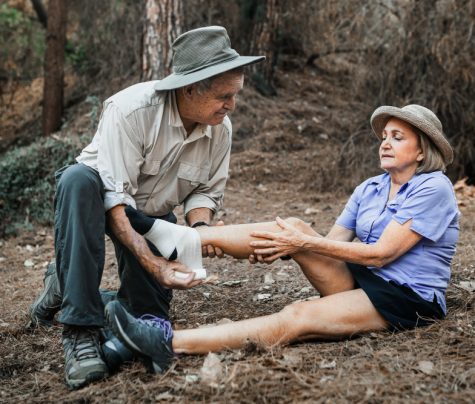
Wrongful Death vs. Criminal Charges might sound like big legal words, but they’re just two different ways the law tries to help when someone dies because of another person’s actions.
In Texas, if someone hurts your loved one and that person passes away, the law can do two things: punish the person who caused the harm and help your family get money to recover from the loss.
When someone dies unfairly, their family can feel confused and overwhelmed. It’s not just about sadness — there are legal steps to take.
Hi. In today’s blog, I’m going to explain how both criminal charges and wrongful death cases work. I’ll also share how Elmazi Law Firm helps Texas families understand the law and find justice in both criminal and civil courts.
So, if that is what you want to know, keep on reading till the end, and thank me later…
Wrongful Death vs. Criminal Charges: Understanding How They Are Different!
When someone dies because of another person’s actions, the law gives two ways to handle it. One is called a criminal charge, which tries to punish the wrongdoer. The other is called a wrongful death lawsuit, which helps the family get money to cover their loss.
These two cases are different but can sometimes happen at the same time. Let’s break it down simply so you know what each one means.
What is a Criminal Charge?
A criminal charge is when the government says someone broke the law. For example, if someone drives drunk and causes an accident that kills someone, the State of Texas can file criminal charges against them.
The person might be arrested and have to go to court. If found guilty, they could go to jail or pay a fine.
In a criminal case, it’s not the family who takes the wrongdoer to court — it’s the state. The goal is to punish the person for doing something wrong, not to pay the family back for their loss. The family may watch the case, but they don’t control it.
What is a Wrongful Death Charge?
A wrongful death lawsuit is not about sending someone to jail. Instead, it’s a civil case where the family of the person who died asks the court to make the wrongdoer pay money. This money helps cover things like medical bills, funeral costs, and lost income.
The family hires a lawyer to file this case. In Texas, only close family members like spouses, children, or parents of the person who died can usually file this lawsuit. The point is to help the family recover from their emotional and financial pain.
At Elmazi Law Firm, their team helps guide families through this process with care and kindness, so they don’t feel lost.
Main Differences: Criminal Charges vs. Wrongful Death Lawsuit
Let’s look at the biggest differences between these two types of cases. Understanding these will help you know what to expect if you’re going through something like this.
Who Files the Case
Criminal Charges: These are filed by the State of Texas. A government lawyer, called a prosecutor, takes the case to court. It’s not about helping the family directly – it’s about protecting the public and punishing the person who broke the law.
Wrongful Death: This case is filed by the family of the person who died. Usually, they work with a lawyer to go to civil court. The goal here is to help the family by getting financial support for their loss.
Purpose of the Case
Criminal Charges: The purpose is to punish the person who did something wrong. If they are proven guilty, there are two possible punishments—being imprisoned or paying fines.
Wrongful Death: The aim of the wrongful death lawsuit in Texas is to assist the family in financial and emotional matters. In the event of success, the wrongdoer must compensate the family for the damage they have caused.
Burden of Proof
Criminal Charges: The law says the accused is innocent until proven guilty. This means that the prosecutor needs to demonstrate that the person is guilty “beyond a reasonable doubt.” It is a high bar of proof as the prosecution is required to exclude any reasonable doubt of any kind about guilt or innocence. It is a very high standard.
Wrongful Death: The standard here is much lower. The family just has to prove that it is “more likely than not” that the person caused the death. In this case, the family is relieved of any affirmative duty of proof.
Potential Outcomes
Criminal Charges: If the person is found guilty, they might go to jail or be punished in other ways. But even if the family is watching, they don’t receive money from this case.
Wrongful Death: If the family wins the case, they can receive money for many things, like:
- Medical bills
- Funeral costs
- Lost wages or income
- Pain and suffering
- Emotional distress
This can help the family move forward and rebuild after a very hard time.
What to Do After a Loved One’s Death in Texas
In case you have lost someone in Texas due to someone ese’s fault or negligence, it is best that you try to take legal action ad seek the justice you deserve.
Here are some of the things that you need to do in Texas:
1. Request the Death Certificate and Gather Key Documents
Start by obtaining an official death certificate from the Texas Department of State Health Services.
You’ll also want to collect any related documents, such as police reports, medical records, or eyewitness accounts.
These will be important for any legal proceedings, whether civil or criminal.
2. Preserve Evidence and Keep Detailed Records
If you suspect someone else’s negligence or wrongdoing caused your loved one’s death, preserve anything that could serve as evidence.
This includes photos of the scene, names and contact information of witnesses, communications with witnesses, or personal effects that may help support your case.
Keep a timeline of events and a file of related records.
3. Contact a Trusted Law Firm
Before speaking to insurance companies or accepting any settlements, talk to an experienced attorney.
A trusted law firm can help you understand your rights, evaluate whether you have a valid wrongful death claim, and guide you through both the civil and criminal processes.
4. Act Within the Legal Timeframe
In Texas, you generally have two years from the date of your loved one’s death to file a wrongful death lawsuit. Waiting too long can jeopardize your right to compensation.
Don’t delay — even if a criminal investigation is ongoing, you can begin preparing your civil case right away.
Hiring an experienced law firm early on will ensure that relevant evidence is preserved and that an investigation begins immediately.
Why File a Wrongful Death Lawsuit — Even If Criminal Charges Are Pending
Many families in Texas think that once someone is charged with a crime, there’s nothing more they need to do. But that’s not true. Even if the wrongdoer is punished by the court, the family might still not get any help for the loss they’ve suffered.
That’s why filing a wrongful death lawsuit is so important. Here’s why families often take this step — even if criminal charges are already happening:
- Criminal courts don’t give money to the family. They only punish the guilty person.
- You can still sue even if the state doesn’t file charges. Sometimes the government doesn’t press charges, but you can still take legal action in civil court.
- The burden of proof is lower in civil court. That makes it easier to win the case.
- You can get help with real costs, like medical bills, funeral expenses, and emotional pain.
Taking civil action can bring both closure and financial support. It also gives families a way to say, “This was wrong, and someone should be held responsible.”
Read Also:
- How Can A Lawyer Help Me Recover Damages From A Motorcycle Crash?
- Finding the Right Lawyer When English Isn’t Your First Language
- 6 Key Concepts in Personal Injury Law











0 Reply
No comments yet.